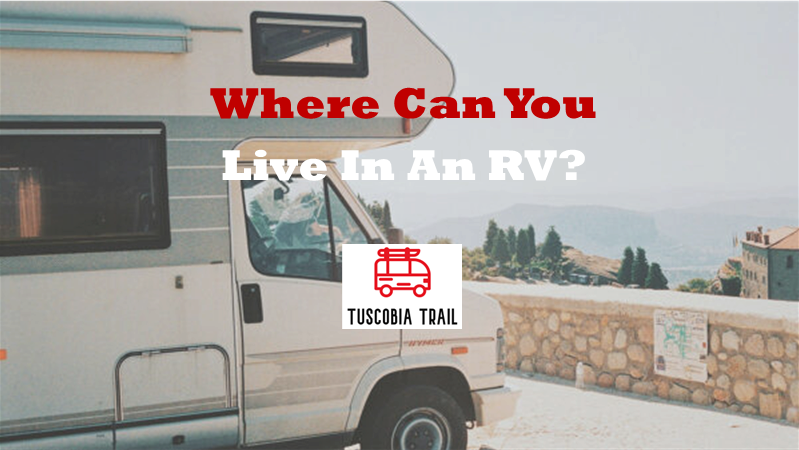The freedom of the open road and the ability to call any place home are just two of the many allures of RV living. But where can you live in an RV?
Unlike traditional homes, RVs offer the flexibility to change your scenery and location at will, making them an attractive option for those seeking adventure or a simpler lifestyle.
Whether you are a full-time van lifer, are a digital nomad travelling and living on the road or just enjoy the freedom of a home on wheels, you can be anywhere at any any time.
While in theory you can park your van up anywhere, the question remains where exactly can you live in an RV legally?
RV Parks: Your Home Away From Home
RV parks are often the go-to choice for many RV enthusiasts with many of them in each town and state.
These dedicated spaces offer a range of amenities, from waste disposal facilities to cable hookups, making them ideal for both short-term stays and long-term living.
Many RV parks welcome full-time residents, providing a sense of community along with the necessary infrastructure for comfortable living.
It’s crucial to note that not all RV parks allow permanent residency. Some have restrictions on the length of stay, while others may be subject to local regulations limiting long-term occupancy.
Always check with the park management beforehand to understand their policies and available lease options.
State-Specific Considerations
When it comes to full-time RV living, some states are more accommodating than other. Factors to consider include:
- Income tax regulations
- Health insurance options
- Mail forwarding services
- Business-friendly regulations
States like Texas, Florida, and South Dakota are often favored by full-time RVers due to their combination of favorable tax laws, reasonable living costs, and RV-friendly policies.
These states allow RV living also tend to have more flexible mail forwarding options, which is crucial for those without a permanent residential address.
Beyond RV Parks
While RV parks are a popular choice, they’re not the only option. Some states allow temporary stays in state and county parks, offering a more rustic experience.
It’s generally not permissible to park and live in an RV on private property without proper authorization though.
For those seeking alternatives, some businesses may allow overnight parking. Always ask for permission and clarify how long you can stay to avoid any legal issues.
Weather Considerations
Many RV enthusiasts tend to gravitate towards the southern and western states, particularly during colder months.
The milder climate in these regions makes year-round RV living more comfortable and reduces the need for winterization of your RV.
Least RV-Friendly Locations
While many places welcome RVers, some areas pose challenges. For instance, California, despite its natural beauty, has stricter regulations on RV parking and size restrictions on certain roads.
Similarly, New York prohibits motor homes on some major roadways and has higher gas prices, making it less appealing for RV living.
Frequently Asked Questions (FAQs)
Can I live in an RV full-time legally?
Yes, it’s legal in many places, but regulations vary by state and locality. Always check local laws and RV park policies.
How much does it cost to live in an RV park?
Costs vary widely depending on location, amenities, and duration of stay. Generally, it’s cheaper than renting an apartment or house.
Can I receive mail while living in an RV?
Yes, through mail forwarding services or by using a permanent address in RV-friendly states.
Are there size restrictions for RVs in certain areas?
Yes, some states and roads have length restrictions. For example, California prohibits vehicles over 40 feet on many roads.
Can I park my RV anywhere and live in it?
Generally, no. Most places require permission or have specific areas designated for RV living.
What are the best states for full-time RV living?
Texas, Florida, and South Dakota are popular due to their tax laws and RV-friendly policies.
Do I need to pay taxes if I live full-time in an RV?
Yes, you still need to pay taxes. Your tax situation will depend on your domicile state and income sources.
Can I run a business from my RV?
Yes, many people do. Consider choosing a domicile state with business-friendly regulations.
